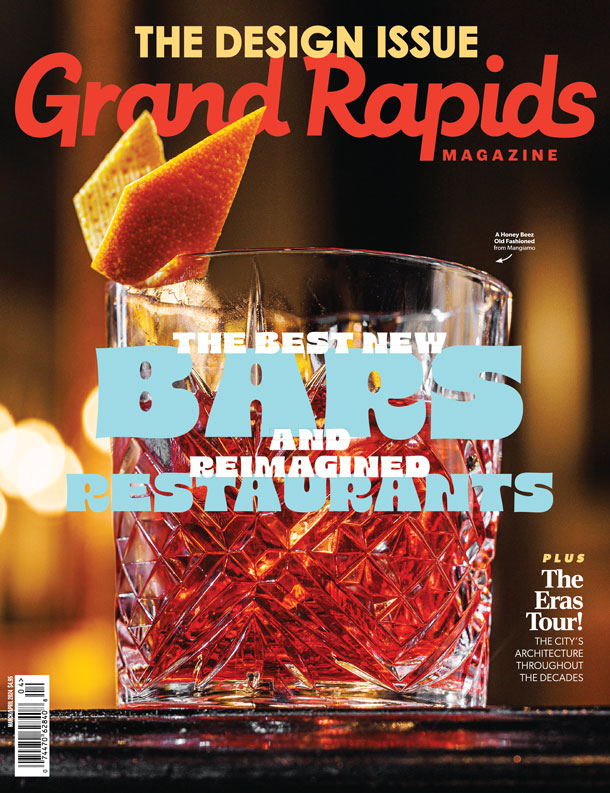
Photo courtesy of Eastern Kille Distillery
It is widely known that Michigan is home to a plethora of craft breweries, but it may come as a surprise that it ranks seventh in the nation for the number of craft distilleries in the state. Several these small-batch distillers, like Long Road, New Holland/Knickerbocker and Eastern Kille (formerly, Gray Skies) have operations or tasting rooms within the city limits of Grand Rapids, with about a half dozen more distilleries in nearby communities.
The emergence of the relatively small-scale operations, when put together, have quite an impact. From grain production to tasting rooms and delivery trucks, the nearly $1-billion business of distilling craft spirits has become a vital part of the state’s economy.

Photo courtesy of Long Road Distillers
To mark the importance of craft spirits to Michigan’s culture and economy, Governor Gretchen Whitmer has announced that September is Michigan Craft Spirits Month. She backed up her commitment to the industry recently when she signed House Bill 4842 which “assists small business distilleries in competing with other Michigan craft beverage producers as well as their distilling counterparts across the country,” according to a statement released by Promote Michigan.
“This is the most important piece of distillery legislation since 2008,” said Jon O’Connor, co-owner and co-founder of Long Road Distillers. The distillery is located on NW Leonard St. in Grand Rapids, with two additional tasting rooms – one in Grand Haven and the new “Road Less Traveled” located at 959 Cherry St. SE.
In 2008, the cost of an annual license to distill alcohol was reduced from $10,000 to $100 for batches of 60,000 gallons or less. Additionally, the legislation passed in 2008 allowed craft spirit distilleries to open their own tasting rooms.
O’Connor, who is president of the Michigan Craft Distillers Association, helped draft the bill which was at least five years in the making. The overarching purpose of the bill is to incentivize Michigan distillers to buy Michigan grain and fruit used in the distilling process, O’Connor said, and will result in craft distillers paying a wholesale markup to the state of Michigan of 32.5% for spirits that utilize Michigan agriculture products, as opposed to a 65% wholesale markup that was imposed on all spirits prior to the passing of the legislation.
The move was in response to marked growth of the industry in the state and as a whole across the country.
The American Craft Spirits Association released the findings of its Craft Spirits Data Project, which tracks the economic dynamics of the U.S. craft spirits industry. The annual report revealed that nationally, the craft spirits industry currently has an annual growth rate of 7.3% by volume and an annual growth rate of 9.8% in terms of sales. U.S. craft spirits market share of total U.S. spirits reached 4.7% in volume, representing a 2.2% gain over a five year period.
The study revealed also that home-state sales of craft spirits represented 92.5% of total sales, demonstrating the industry’s dependence on a loyal, local base of customers.







Facebook Comments